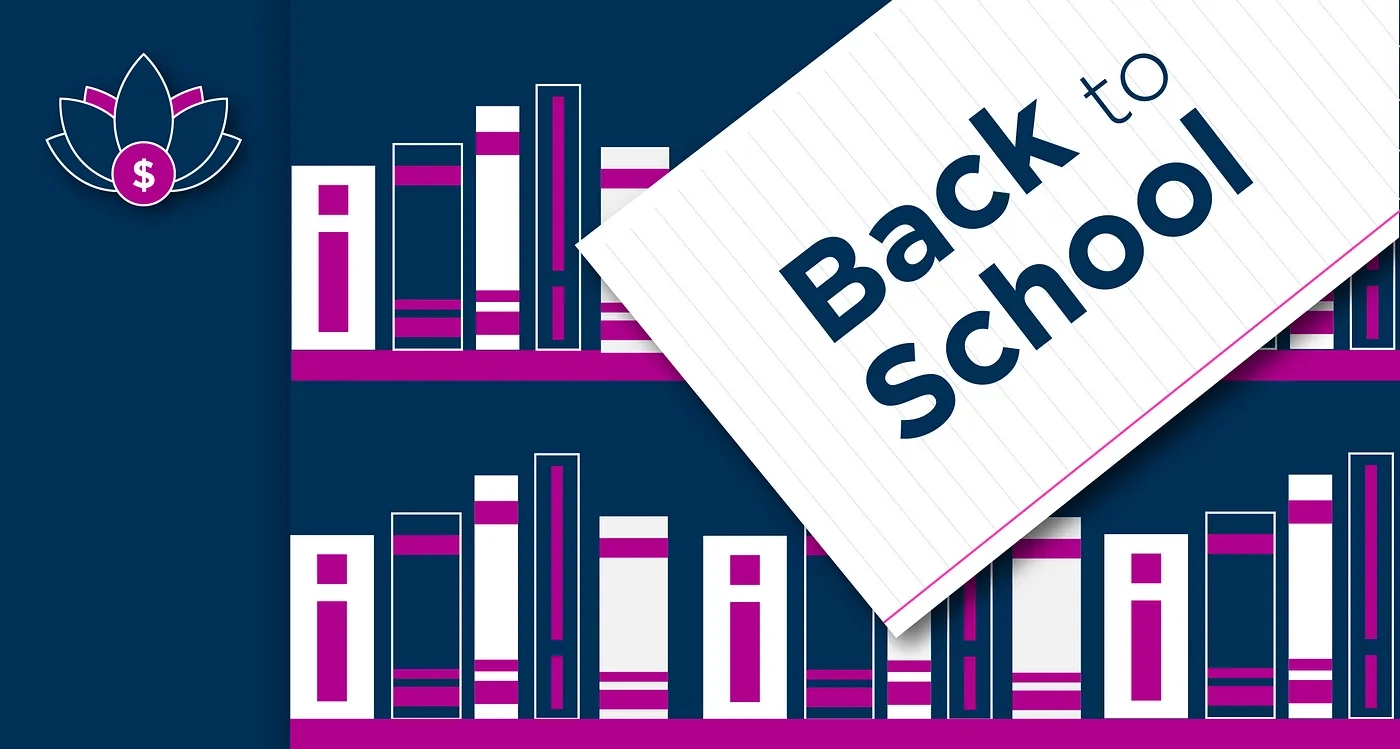Back-to-school season is a stressful time financially for many of our Personal Financial Coaching clients, as it is for millions of workers across the country.

Back-to-school season is a stressful time financially for many of our Personal Financial Coaching clients, as it is for millions of workers across the country.
Families with children in elementary through high school plan to spend an average of $890.07 on back-to-school items this year, approximately $25 more than last year’s record of $864.35, according to the National Retail Federation and Prosper Insights & Analytics.
Back-to-school spending overall is also expected to reach a record high this year, of $41.5 billion, while $94 billion is expected in back-to-college spending, $20 billion more than last year’s record, per NRF.
A majority of workers are stressed about back-to-school spending
Meanwhile, workers are worried about how to pay for all things back to school. 85% of respondents to a recent CNET Money survey said inflation and rising consumer costs would impact their back-to-school shopping plans this year, and nearly 75% of parents nationwide said they expect the costs of sending kids back to school this year to be a challenge, per U.S. News & World Report.
In short, many of your employees with kids are stressed about money at the moment. This stress ripples through the mental and physical health of your workers and reduces your organization’s productivity and impact, as financially stressed employees tend to be more distracted, less engaged and more likely to seek another job, according to PWC’s 2023 Employee Financial Wellness Survey.
Household credit card debt rose to a record $1.03 trillion
Household credit card debt rose to a record $1.03 trillion in the second quarter of 2023, according to the Federal Reserve Bank of New York’s latest Quarterly Report on Household Debt and Credit. And, with 43% of back-to-school shoppers planning to leverage some form of financing to pay for supplies this year, a new record in Q3 feels inevitable.
To boost health, productivity, and retention this back-to-school season and beyond, help your employees avoid bad debt by offering some or all of the following debt- and credit-related benefits:
Debt reduction and consolidation benefits
- Access to debt consolidation loans and other forms of debt relief
- Access to student loan solutions that offer evaluation tools and options for reducing payments
- Employer contributions toward student loan repayment
Debt preys on low-income workers who are increasingly forced to rely on it to get by because the U.S. system of jobs, benefits, financial products and services is broken. Bad debt, defined broadly as debt borrowers cannot pay back at an affordable cost or within a reasonable time frame, prevents millions of workers from saving money and investing in their retirement. It’s a drag on workers’ physical, financial, and mental health, as well as worker productivity, and the U.S. economy.
Debt is also a driver of the racial wealth gap. Among TrustPlus clients, 46 percent had at least one debt in collections from 2021 through 2022. During the same period, 53 percent of TrustPlus clients who identified as Black had collections debt, more than any other group.
This racial disparity in collections is particularly pernicious because collections have a major impact on an individual’s credit score, and by extension their ability to access credit, for up to seven years.
Short-term liquidity benefits
- Access to low-cost personal loans that employees pay back via payroll
- Emergency grants to help with unforeseen catastrophic events or illnesses
- Access to an emergency savings account
- Employer contributions to an emergency savings account
- Free or low-cost access to accrued, earned wages in advance of payday
The SECURE 2.0 Act of 2022 gives defined contribution (DC) plan sponsors a new way to help employees accumulate emergency savings. Sponsors of 401(k), 403(b) and governmental 457(b) plans can offer non highly compensated employees (NHCEs) pension-linked emergency savings accounts (PLESAs) in plan years beginning after Dec. 31, 2023. Employees would contribute to these accounts on a Roth basis and could make withdrawals as frequently as monthly, writes Mercer.
Financial guidance benefits
- Free access to financial planning app/website (e.g., budgeting and savings tools and calculators)
- Free credit counseling session to help manage debt
- Free financial education resources
- Free personalized coaching sessions with a (TrustPlus) Personal Finance Coach
Lots of businesses offer help with financial literacy, an impersonal app, a group workshop, etc. But for us at TrustPlus it’s about more than just literacy because literacy alone isn’t enough: “One-size-fits-all financial education has little to no effect on changing real-world financial behaviors. A meta-analysis of more than 200 studies found that educational interventions explained only 0.1% of the financial behaviors studied,” found Martha Menard.
Knowing what to do is only a small part of the financial struggle for many of our clients. There are emotions involved, fear, pride, shame, desire. Money is personal which is why businesses that are motivated to help solve for employees’ financial health need a personal solution, during back-to-school season and beyond.
Schedule a time to speak with TrustPlus about cultivating and harnessing the benefits of a financially healthy workforce today.






